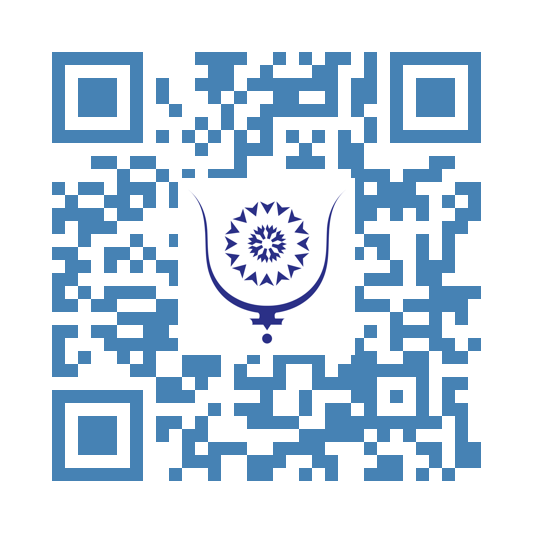Trump, le Maroc et la fin du mythe Polisario 700
Depuis quelques semaines à peine, la question du Sahara occidental enregistre une série de rebondissements d’une intensité rare, marquant une véritable accélération dans un dossier longtemps figé par les pesanteurs diplomatiques, les inerties stratégiques et les calculs occultes. L’administration Trump, chef de file d’un courant international lassé de ce conflit d’un autre temps, a clairement affiché sa volonté de passer à une nouvelle ère, rompant avec des décennies d’attentisme, alimenté par la Guerre froide et ses prolongements idéologiques.
Pour Washington, il n’est plus question de tolérer les jeux de déstabilisation d’un régime militaire algérien en perte de repères, qui instrumentalise ce conflit pour masquer ses propres échecs internes, politiques, économiques et sociaux et freine ainsi les ambitions de développement, les bonnes relations régionales dans la complémentarité et le respect d’un voisin marocain qu’il jalouse aussi pour ses réussites et ses alliances solides avec l’Occident.
L’élection de Donald Trump a rebattu les cartes. Exit les postures prudentes et les équilibres fragiles entre belligérants : l’heure est à l’action, à la transparence des alliances, et à la recherche de solutions concrètes. Dans cette logique, le soutien de l’administration Trump à la proposition marocaine d’autonomie est sans équivoque. L’initiative marocaine est désormais qualifiée par la Maison-Blanche comme la seule base « juste et durable » pour une résolution du conflit.
Lors d’une rencontre riche en symbolique entre le ministre marocain des Affaires étrangères, Nasser Bourita, et le sénateur Marco Rubio, ce dernier a réaffirmé l’engagement des États-Unis envers une solution fondée exclusivement sur l’offre marocaine. Les signaux sont clairs : pour Washington, la fin de la récréation a sonné. Le Maroc est solide et fiable. Il est dans son droit. C’est le meilleur ami et partenaire dans la région. C’est aussi le premier pays à avoir reconnu les américains et protégé leur flotte dans les moments difficiles de ce pays naissant alors.
Ce réalignement américain reconfirmé s’accompagne de propositions audacieuses. Plusieurs membres influents du Congrès envisagent désormais de désigner officiellement le Front Polisario comme organisation terroriste. Et ils ont sur quoi reposer leur argumentaire, notamment : les attaques contre des civils à Smara et du côté de El Mahbas, la rupture unilatérale du cessez-le-feu de 1991, mais aussi les liens supposés avec des puissances hostiles comme l’Iran ou la Russie, sans omettre la présence avérée de combattants du Polisario en Syrie d’ailleurs toujours détenus là-bas.
Le 11 avril, faut-il le rappeler le représentant républicain Joe Wilson a annoncé son intention de déposer un projet de loi en ce sens. Selon lui, le Front Polisario constitue une porte d’entrée pour ce qu’il appelle « l’Axe de l’agression » en Afrique, reliant l’organisation séparatiste à des ambitions géopolitiques iraniennes et russes sur le continent et c’est menaçant pour la sécurité des USA. Il a entre les mains aujourd’hui l’étude étayée de l’Hudson Institute qui conclue aux relations étroites du Polisario avec le Hezboallah et même avec le PKK. Il serait actif dans des trafics d’armes avec les groupes terroristes au Sahel, compromis dans les détournements d’aides humanitaires etc.
Il ne faut pas penser qu’il n’ait que des américains qui seraient dans cette logique. En fin de semaine dernière par exemple, Liam Fox ancien secrétaire d’état britannique à la défense qualifiait à son tour le Polisario d’organisation terroriste. L’idée est en train de faire sérieusement son chemin. La récente
Cette dynamique met l’Algérie face à ses responsabilités : le Polisario est hébergé, soutenu et financé, sur son territoire. Qualifier le Polisario d’organisation terroriste c’est aussi l’éjecter de l’équation. Sa marginalisation diplomatique isolerait encore davantage Alger, désormais confondu être la partie intégrante du conflit, et non plus la simple actrice tierce qu’elle prétend être. Le masque est définitivement tombé.
Autre pays dans la tourmente : l’Afrique du Sud. Soutien traditionnel du Polisario, Pretoria commence à ressentir les effets de cette bascule stratégique. La presse locale s’interroge, des voix au sein de l’ANC appellent à une réévaluation de la politique étrangère du pays. Plusieurs ONG sont connues pour mener là encore des activités de collecte de fonds pour le Polisario, mais des think tanks comme l’Institut Hudson, encore lui, estiment qu’une désignation terroriste les contraindrait à cesser ces opérations sous peine de sanctions internationales.
Les conséquences pourraient être lourdes pour les institutions sud-africaines. Déjà sous la surveillance du GAFI (Groupe d’action financière), le pays ne peut se permettre d’être soupçonné de complicité avec une entité classée terroriste. Les banques, en particulier, redoutent les contrôles et pourraient exiger du gouvernement un changement de cap.
Le climat entre Washington et Pretoria, déjà froid depuis l’arrivée de Trump au pouvoir, risque ainsi de se détériorer davantage. L’administration américaine ne cache pas sa défiance envers le gouvernement sud-africain. Une éventuelle désignation du Polisario comme groupe terroriste serait alors un point de rupture dans une relation déjà fragilisée, avec à la clé des sanctions, des pressions économiques et une surveillance diplomatique renforcée.
Le dossier du Sahara occidental entre dans une nouvelle phase. La logique de statu quo ne tient plus face aux réalignements internationaux, et les manœuvres dilatoires perdent en efficacité. Le monde ne veut plus de conflits congelés, et les puissances aspirent à un continent africain stable, fiable, et ouvert aux échanges. Dans cette dynamique, le Maroc semble avoir gagné la bataille de la clarté. Reste à voir si ses adversaires sauront lire les nouveaux équilibres.
C’est sans doute ce qui explique et motive l’optimisme du représentant marocain à l’ONU, Omar Hilale… Il n’a pas hésité à insinuer en des termes à peine voilés que le dossier serait annoncé clos en concomitance avec les célébrations par le peuple marocain du cinquantième anniversaire de la Marche Verte, le 6 novembre prochain…




